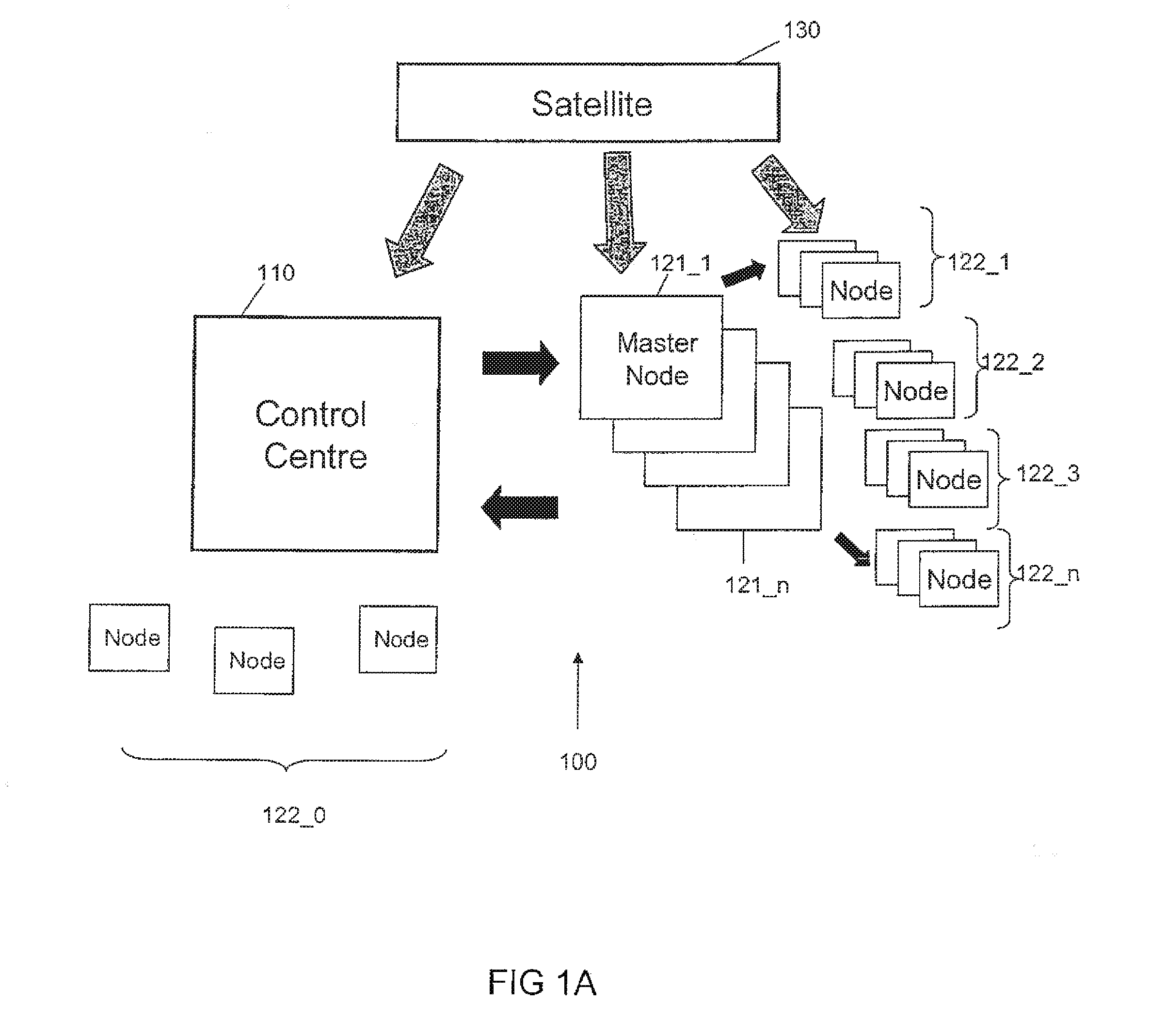Method of Synchronising Nodes of a Network, and System and Device Therefor
a network and node technology, applied in the direction of direction finders using radio waves, instruments, multiplex communication, etc., can solve the problems of insufficient high-precision time transfer applications, limited accuracy of pseudo-range measurements, and even more critical problems, and achieve high accuracy
- Summary
- Abstract
- Description
- Claims
- Application Information
AI Technical Summary
Benefits of technology
Problems solved by technology
Method used
Image
Examples
Embodiment Construction
[0039]A first embodiment of the invention will now be described with reference to FIGS. 1 to 4. FIGS. 1A and 1B illustrate a system 100 for synchronising nodes of a network to a reference timescale according to the first embodiment of the invention. The system comprises a control centre 110 having a reference timescale, n spatially separated master nodes 121-1 to 121-n, and m network nodes in groups 122_0, 122_1, 122_2 . . . 122—n, a GNSS satellite system 130, such as a GPS, GLONASS, GALILEO or COMPASS satellite system, comprising a plurality of satellites for providing positioning signals to control centre 110 and the nodes 121, 122 of the network.
[0040]The control centre 110 will now be described in more detail with reference to FIG. 2. Control centre 110 includes a multi frequency (at least dual frequency) GNSS receiver 1101 operatively associated with a GNSS antenna 1111 for receiving navigation signals from any of the satellites of GNSS satellite system 130 in view of the GNSS ...
PUM
 Login to View More
Login to View More Abstract
Description
Claims
Application Information
 Login to View More
Login to View More - R&D
- Intellectual Property
- Life Sciences
- Materials
- Tech Scout
- Unparalleled Data Quality
- Higher Quality Content
- 60% Fewer Hallucinations
Browse by: Latest US Patents, China's latest patents, Technical Efficacy Thesaurus, Application Domain, Technology Topic, Popular Technical Reports.
© 2025 PatSnap. All rights reserved.Legal|Privacy policy|Modern Slavery Act Transparency Statement|Sitemap|About US| Contact US: help@patsnap.com



